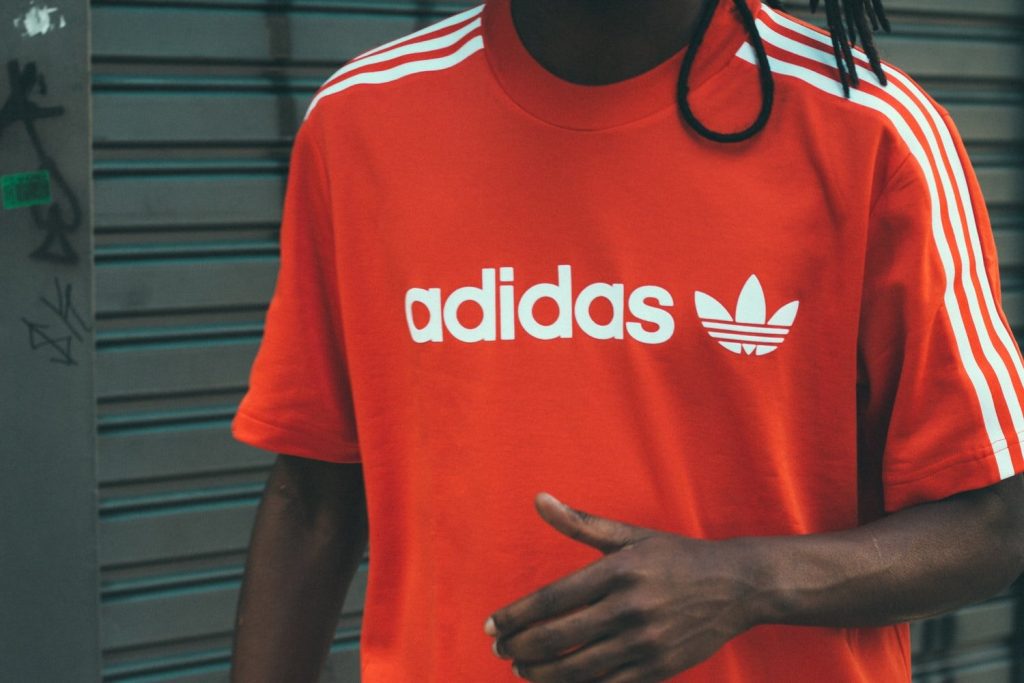Adidas has waged its latest three-stripe trademark battle, and this time, it comes in the form of an attempt to block Black Lives Matter Global Network Foundation, Inc. (“BLM”)’s registration of a three-stripe mark of its own. In the notice of opposition that it lodged with the U.S. Patent and Trademark Office’s Trademark Trial and Appeal Board (“TTAB”) on March 27, adidas asserts that “notwithstanding [its] prior rights, and well after [its] three-stripe mark became famous,” BLM lodged an application to register a mark that consist of three horizontal yellow stripes for use on “bags, namely, hand bags, sports bags; tote bags,” various articles of clothing, and “online retail store services featuring apparel, headwear,” etc., among other things.
At the heart of adidas’ opposition is its claim that “consumers familiar with the goods and services long associated with [its] three-stripe mark are likely to assume that the goods and services offered under [BLM’s] mark originate from the same source, or that they are affiliated, connected, or associated with or sponsored by adidas” when no such affiliation and sponsorship exists. The potential for consumer confusion is likely, according to adidas, as BLM’s mark “incorporates three stripes in a manner that is confusingly similar to [its] three-stripe mark in appearance and overall commercial impression.”

Beyond that, adidas alleges in the opposition that the goods/services identified in Classes 18 (namely, bags), 25 (clothing), and 35 (online retail services) in the trademark application that BLM filed with the U.S. Patent and Trademark Office (“USPTO”) back in November 2022 “are identical and/or highly related to the goods and services adidas long has offered in connection with [its] three-stripe mark.” (Adidas notes that it has used its three-stripe mark since at least 1952 on footwear and 1967 on apparel, and thus, there is “no issue as to priority,” given BLM’s “November 6, 2020 filing date and any claimed date of first use.”)
The bottom line here, per adidas: BLM’s mark “so closely resembles [its] previously used, and previously registered, three-stripe mark” that BLM’s “use and registration of [the yellow three-stripe mark] in Classes 18, 25, and 35 is likely to cause confusion, deception, or mistake as to the affiliation, connection, or association among consumers.”
Still yet, the German sportswear giant calls foul from a dilution perspective, asserting that the registration for BLM’s mark in Classes 18, 25, and 35 is “likely to dilute the distinctiveness of [its] three-stripe mark by eroding consumers’ exclusive identification of the three-stripe mark with adidas, and otherwise lessening the capacity of the three-stripe mark to identify and distinguish the goods and services of adidas.” Furthering its dilution-centric claim, adidas maintains that “any defect, objection, or fault found with the goods and services offered or sold under [BLM’s] mark in Classes 18, 25, and 35 necessarily would reflect on and seriously injure adidas’s reputation.”
With the foregoing in mind, adidas – which also made headlines on Tuesday for cutting ties with Beyoncé due to lackluster sales of her Ivy Park collaborative collection – is urging the TTAB to refuse registration for BLM’s mark.
Prior to the publication of the BLM mark by the USPTO in September 2022, BLM faced pushback from an examining attorney on the basis that the mark fails to function when used on the specimen of record. Specifically, the USPTO’s attorney held that the mark “is merely a background design that functions as part of a composite mark that incorporates additional designs or wording; it does not function separately as a mark.” The additional wording is, of course, Black Lives Matter. Counsel for BLM responded by amending its filing basis from 1(a) to an intent-to-use basis.
Interestingly, while BLM faced a handful of issues in the first Office action that the USPTO attorney issued in May 2021, including failure to function, as well as “activity not a service for Class 36,” “identification of goods and services,” and ‘multi-class advisory,” likelihood of confusion with an already-registered mark was not one of them – for what it is worth.
THE BIGGER PICTURE: Merits of its likelihood of confusion and dilution arguments aside, adidas’ opposition very well may be met with discontent, and in fact, the potential for public relations backlash could be a risk to the brand’s reputation. Such tension requires rights holders to routinely weigh their duty to police unauthorized uses of their marks and/or marks that are confusingly similar to their marks, on the one hand, and the risk of bad press, on the other. This makes trademark enforcement a strategic practice in many cases, and something of a delicate one, particularly in the social media era.
Despite accusations of being an overly aggressive enforcer, adidas’ enduring efforts – which range from routine opposition proceedings to dozens of trademark infringement lawsuits over the past decade, alone (the most recent of which saw it face off against Thom Browne) – show no signs of abating. More than that, its strategy seems to somewhat clearly indicate that it is more willing – and that it is more important for trademark holders – to roll the dice from a consumer backlash perspective in order to police its very valuable source-indicating assets than it is to face other risks. And there are, of course, other high-stakes risks for adidas and other trademark holders. Pushback of a different kind comes to mind, including cancellation of their registrations and/or failure to police and/or acquiescence defenses, which could stand in the way of them successfully making trademark claims later down the road.
UPDATED (Mar. 29, 2023): Adidas said in a statement to Reuters that it “will withdraw its opposition to the Black Lives Matter Global Network Foundation’s trademark application as soon as possible” without elaborating further.











